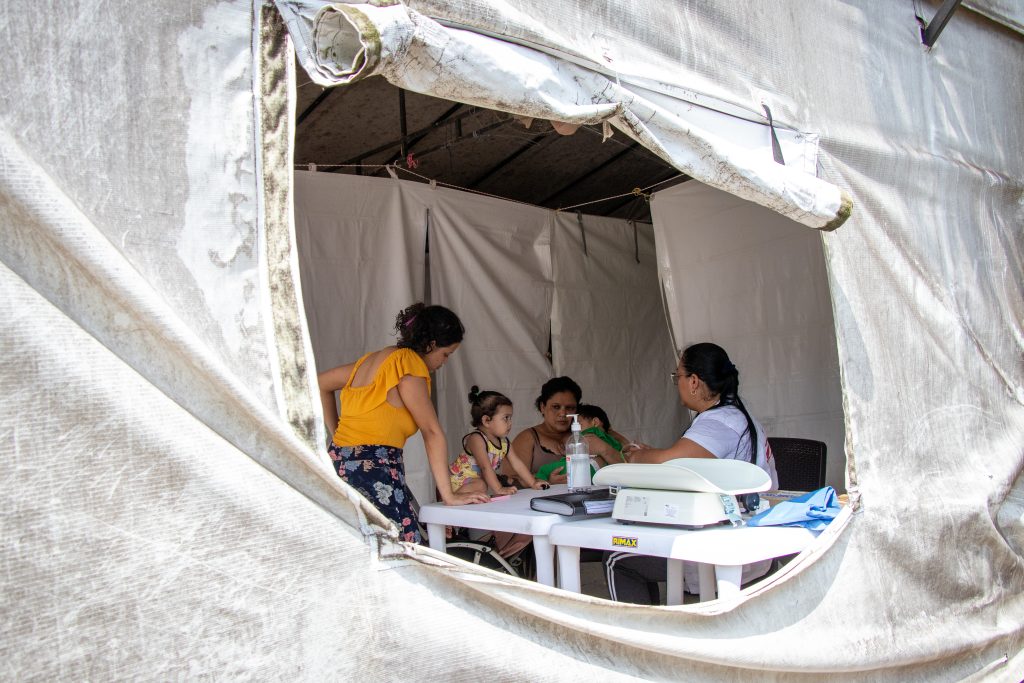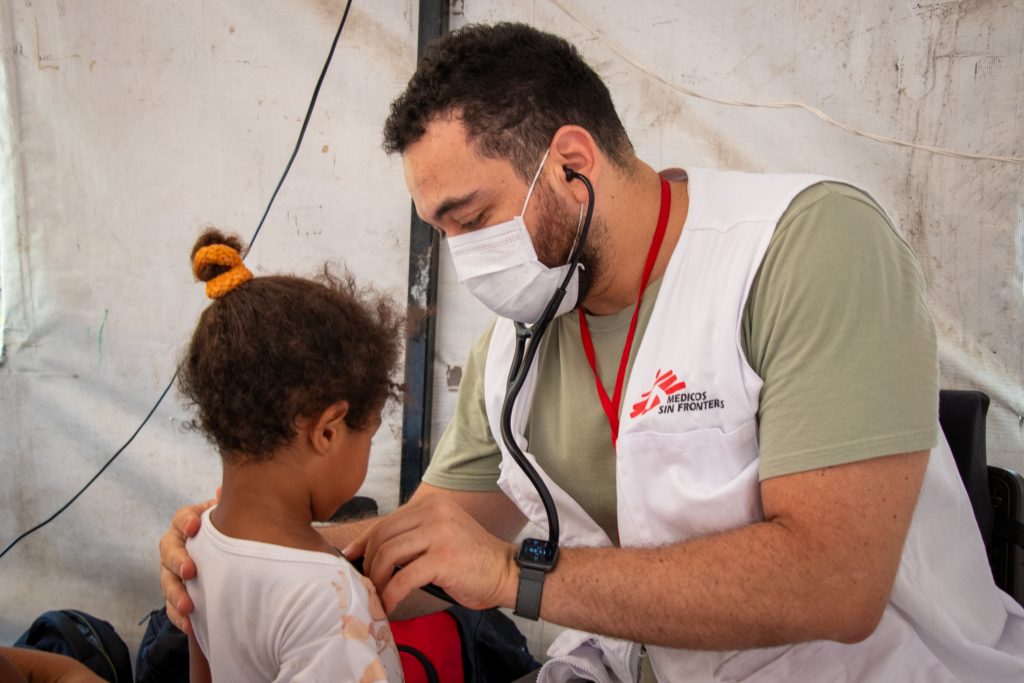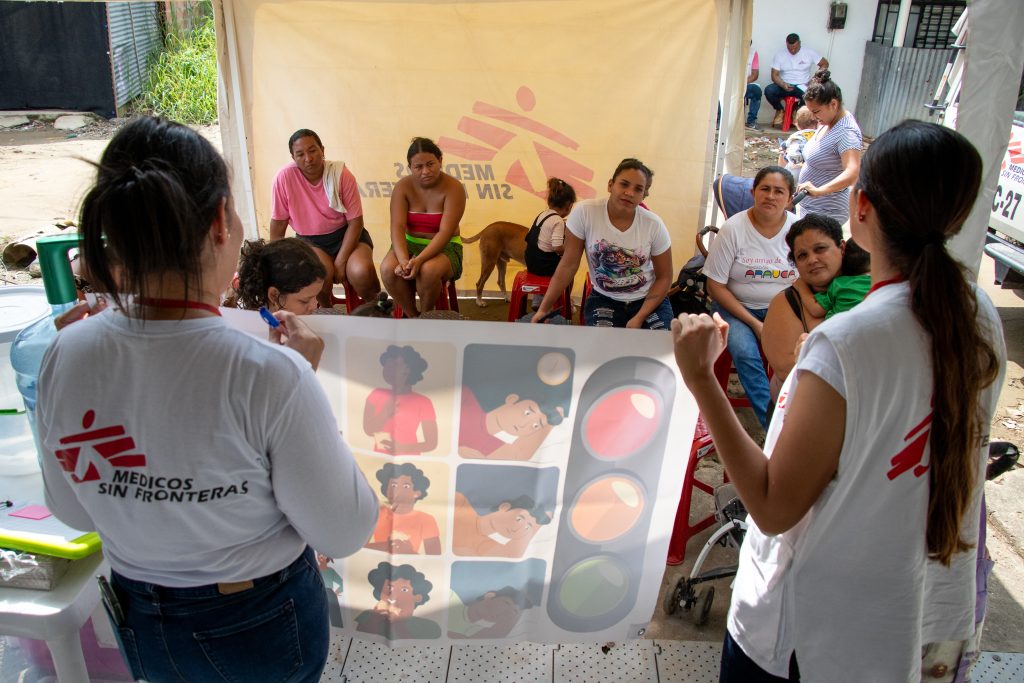Arauca, Colombia- In Colombia’s northeastern department of Arauca, continuous migration from Venezuela, intensified armed conflict between the National Liberation Army (ELN) and dissidents of the Central General State (EMC), and emergency response from floods, have overwhelmed the local capacity since 2022.
In 2024, Arauca was the third department in the country with the highest number of victims of forced confinement, with nearly 10,000 people affected. The conflict between the ELN and the EMC worsened after the suspension of peace negotiations, creating significant barriers to accessing health services in rural villages.

In the capital city of Arauca, returned Colombians from Venezuela, people displaced by the conflict, and Venezuelan migrants living in informal settlements on the outskirts, also have limited access to healthcare. According to official figures, there are approximately 75,000 Venezuelans in the department. Although most have a Temporary Protection Permit, many still face barriers to basic services. Violence and uncertainty have taken a toll on the mental health of communities, manifesting as muscle diseases, sleep disorders, and other somatic symptoms.
Since March 2025, Médecins Sans Frontières / Doctors Without Borders (MSF) has implemented a medical project in Arauca, focusing on settlements in the outskirts of the regional capital and rural areas affected by the conflict in the municipalities of Tame, Arauquita, and Puerto Rondón. From 3 March to 15 July, MSF teams conducted 2,400 general medical consultations, 488 sexual and reproductive health consultations, 48 consultations with pregnant women, and 198 individual mental health consultations.
“It’s hard for us Venezuelans to get a job here,” Mariocy, 39
“I had to leave Venezuela at the end of 2024 because my husband mistreated me. Here it hasn’t gone well, but it hasn’t gone badly either. The hardest thing is the rent. I’ve already been kicked out of two houses because sometimes I’m late with the payment. For us Venezuelans it is difficult to get a job here. They always want to pay us less. I recently got a job cleaning two hours a day in a bar, but they wanted to pay me 250,000 pesos a month (60 USD) to clean a very large place with 40 tables. In Arauca, we have received health only through mobile clinics of [humanitarian] organizations.”

“It’s not easy to migrate,” Arielvis, 25
“I had a journey of suffering. From Maracaibo (Venezuela) I had to go via San Cristóbal. On the way that road broke, I was stopped without food or anything, we stood there for a whole day. With three children. They were crying. I spent about two days traveling. Horrible. It is not easy to migrate. Now I’m… worried… since I’m going to give birth soon too and I don’t have anything right now. We live together, four adults and eight children. We sleep badly, four in a bed, others sleep on the floor. The children get sick all the time. I don’t have a PPT [Temporary Protection Permit] or a card but thank God I was found by a foundation and they are the ones who are helping me with the consultations.













